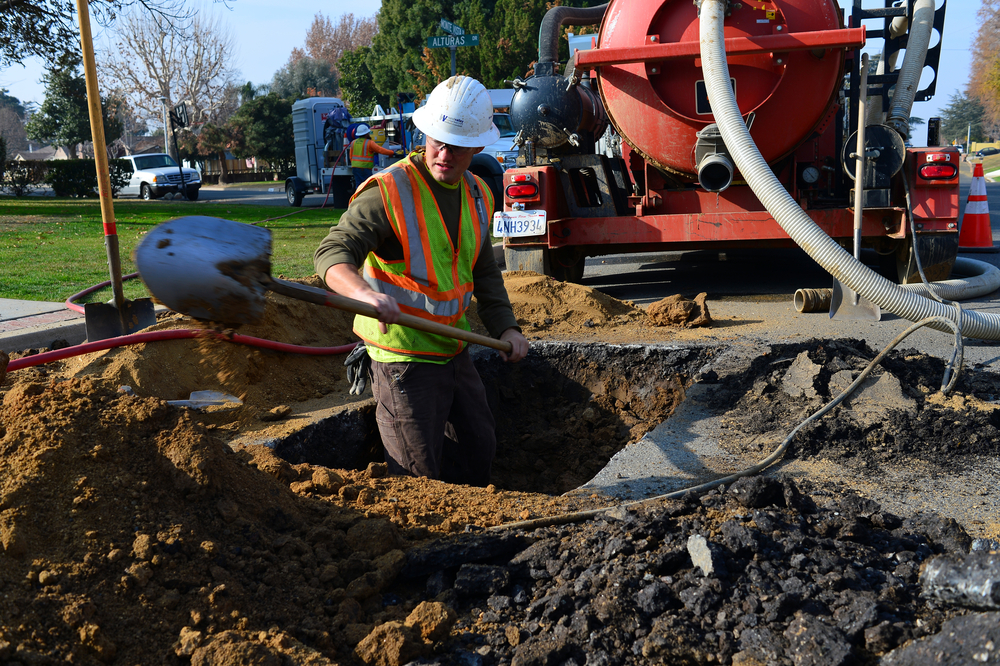The California Department of Corrections changed to the California Department of Corrections and Rehabilitation a few years ago. The cost to make that change must have been in the millions.
But the idea of a new state entity with a new and innovative function rarely happens. However, it did in 2017 when the legislature created the California Underground Facilities Safe Excavation Board, commonly called the Dig Safe Board. SCCA was deeply involved in its legislative formation.
After the San Bruno pipeline explosion in 2010, the state became more aware of underground utility safety. To be clear, the cause of the San Bruno accident had nothing to do with excavation. Federal investigators determined the cause to be faulty installation and faulty welds on a 30-inch diameter natural gas pipe.
But the focus on underground utilities had begun. Reports from across the state were finding that California’s natural gas pipelines were being damaged in 7,000 incidents every year. That figure is likely much higher when other underground utilities,such as electrical and telecommunication lines, are included.
What was the state doing to reduce the number of incidents causing damage to underground utilities, colloquially called dig-ins? Not much. The law authorizes the California Attorney General and local district attorneys to prosecute for violations of the Call Before You Dig Law. But they never pursue violators because the violation is such a low priority, according to the California District Attorneys Association. More attention was needed to not only protect underground utilities but, most importantly, to protect the safety of construction workers excavating around them.
California has had a law since 1980 that provides a free underground utility locating service to contractors and other excavators. The law is simple – an excavator delineates the area where it wants to dig 48 hours before the start of excavation. The excavator then contacts one of two Call Before You Dig Call Centers and they dispatch utility workers to locate and mark any underground utilities in the excavation zone.
The law works great when it’s used. Both the Northern and Southern California Call Centers receive approximately 2 million requests to locate and mark, called tickets, every year.Reports indicate there are around 10,000 incidents of damage and of those about half did not contact the Call Before You Dig service.
Ten thousand of 2 million tickets is a low percentage, but it’s a high number when it’s put into perspective. It equates to almost 30 incidents of damage every single day in California. That’s high and it could be significantly reduced if more contractors used the service.
That’s the conclusion the legislature arrived at in 2016 when it decided to create the Dig Safe Board. The board was charged with educating the public, investigating incidents where damage occurred in order to determine causation and develop standards for safely excavating around underground utilities.
As you can imagine, the creation of any new government agency, department or board is slow and cumbersome. Although the board held its first meeting in January 2018, it’s still not fully functioning. But it’s held monthly meetings and promulgated its first set of regulations.
SCCA has participated in almost every meeting. Engaging in the board’s early meetings is critical. The board will be in its operational stages later when it’s fully functioning and fulfilling its charges. Influencing the board early helps steer how it will function later.
Although the statutes are clear in the board’s charge, it shouldn’t be a surprise that the board has been somewhat distracted with other priorities. Recently one board member declared his intent to have the board operate both regional call centers although both are functioning exceedingly well. This direction seems to be ill-advised and counter-productive to the goal of increasing the number of calls to the call centers.
Most surprising is the extent to which the board has deviated from its legislatively mandated functions and dabbled in the unnecessary and superfluous. One regulation mandates that in the event of a significant accident causing damage to an underground utility, the contractor must contact one of the call centers within two hours of the incident. The law already requires the contractor to contact 911 and the utility, so why contact the board too? The reason is so that the board can potentially dispatch their investigators. It estimates there will be around 4,000 incidents that meet the significant standard, meaning it will receive about 11 calls per day. Unless the board has an army SCCA Lobbyist Todd Bloomstine addresses the California Underground Facilities Safe Excavation Board at its September 2019 meeting in Los Angeles. of investigators, this regulation is unnecessary and will only bury the board in investigatory paperwork.
Another crazy proposed regulation authorizes an appeal of the board’s decision to sanction a party found in violation of the law. The party can request an informal hearing by the board or request an administrative law judge. However, the proposed regulation requires the violator to pay for the board’s legal costs if it chooses the administrative law judge. This is entirely unfair and violates the basic American tenet that parties in judicial, regulatory or administrative disputes pay their own costs. It will also likely dissuade violators from pursuing the administrative law judge avenue.
SCCA commented on this and other regulatory proposals and indicated its concern.
For the most part, however, the creation of the board will increase the awareness of the Call Before You Dig Law and the importance of safely excavating around underground utilities. SCCA will continue to engage and serve as a resource to this newly created board.
Todd Bloomstine is a California registered lobbyist. He is the owner of Bloomstine & Bloomstine LLC and has represented SCCA in Sacramento since 2001.


